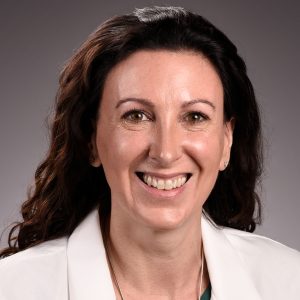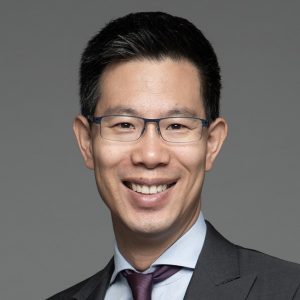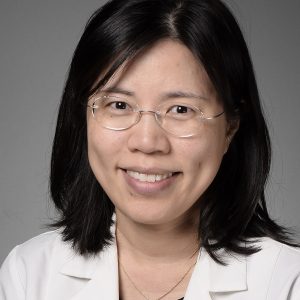
Meet our new clinician investigators
Three physicians recently joined Southern California Permanente Medical Group’s Clinician Investigator Program: urogynecologist Kimberly Ferrante, MD, MAS; pulmonologist Dennis Hwang, MD; and cardiologist Mingsum Lee, MD, PhD.
The Clinician Investigator Program is a formal pathway that allows physicians to integrate research into their clinical careers. Physicians selected for the highly competitive program receive additional time to conduct research and have access to biostatistician and administrative support to conduct that research. They are chosen based on application proposals that outline the research they want to accomplish.
“We look at the scientific quality of the proposal, the ability to do the project within Kaiser Permanente, and the potential for improving clinical care to Kaiser Permanente members,” said William Towner, MD, the regional physician director of Clinical Trials, who oversees the program.
He noted that clinician research is one of the important contributors to the continual quality improvement at Kaiser Permanente.
“Physician research drives important research questions,” Dr. Towner said, “that then they can answer through research. And those findings, along with many other findings, then circle around to improve patient care.”
Each of the new clinician researchers provided information on their practice and their new research.
Kimberly Ferrante, MD, MAS (Urogynecology, San Diego Medical Center) will investigate the use of pulsed CO2 laser treatments to treat the genitourinary syndromes of menopause. These include genital symptoms such as dryness, burning, and irritation; sexual symptoms such as lack of lubrication, discomfort or pain; and urinary symptoms including urgency, and dysuria.

Kimberly Ferrante, MD, MAS
- When and why did you become interested in the practice of medicine? During college, I was drawn toward science and this was when it first occurred to me that I might be interested in becoming a doctor. But I didn’t want to commit to a career without really knowing what was involved. So, after college I went to work for a neurologist at Massachusetts General Hospital in Boston, helping her with clinical research for her patients with ALS (Lou Gehrig’s disease). My 2 years there gave me experience working directly with patients and allowed me to understand a physician’s role by shadowing my mentor.
- Why did you decide to pursue research in addition to your practice? Since my days as a clinical research coordinator, I have realized how much of an impact research can have on patients’ lives. I see clinical research as an extension of my job as a physician. It helps me to take better care of my patients and be able to offer them the best treatments.
- Why is it important to research the use of pulsed CO2 laser treatments to treat the genitourinary syndromes of menopause? The current treatments for genitourinary syndrome of menopause are lacking beyond over-the-counter lubricants and vaginal estrogen. While vaginal estrogen has low absorption into the blood and has been shown to be low risk, there are still patients who cannot or prefer not to use hormones. The CO2 laser has been proposed to be a solution to this and while studies so far are promising, most of the studies have been funded by the company that makes the laser, which potentially introduces a bias. We want to have a better idea of if this treatment really works for patients. If so, it would fill a gap where there is currently lack of alternative treatment options.
Dennis Hwang, MD (Sleep and Pulmonary Medicine, Fontana Medical Center) will investigate how machine learning may be used to predict CPAP (Continuous Positive Airway Pressure) adherence after the initiation of therapy for obstructive sleep apnea.
- When and why did you become interested in the practice of medicine? I was inspired at an early age to be a doctor because my father was a physician, but my passion for medicine has been a continuously evolving journey. During my medical training, I took care of a woman with a seem

Dennis Hwang, MD
ingly simple overgrowth of fungus in her throat, but she ended up passing away after 3 weeks. I was blessed to have been invited to her funeral and included by her family in their service. I learned that day that whether a person gets better or not is mostly not up to me. Rather, I learned to appreciate what is under my control — being intentional in affecting people in a deep and personal way. I’ve realized that — whether helping people with sleep disorders or those acutely ill in the intensive care unit — there is no greater field than medicine to deeply touch people in something as important and personal as their health.
- Why did you decide to pursue research in addition to your practice? During my journey, I recognized and learned to appreciate the differences and uniqueness of each patient. Why do some people with sleep apnea love their CPAP whereas others use it as a glorified paperweight? Why do some patients respond well to special mouthguards while others respond to special nasal valve devices? I became interested in research in order to innovate systems, processes, and paradigms so that we can address those challenges. My passion in research resides in the hope that these efforts will transform health outcomes for multitudes of patients while also emphasizing the uniqueness of each individual.
- Why is the work into machine learning and CPAP important? Big data tools are often employed at high administrative levels to identify areas of improvement, which result in mandates to be carried out by grassroot providers. My goal, on the other hand, is to apply big data tools directly at the grassroots level. This helps us to better support the care delivery experience and enhance personalized care. Obstructive sleep apnea is strongly associated with heart disease and other health conditions and affects daily function and quality of life. But CPAP treatment is limited often by inconsistent use, which limits our ability to improve outcomes. We intend to use machine learning to predict who will be successful or not with CPAP and initiate the proper treatment early, which limits lost time and improves patient perception with treatment. We also hope to predict when a patient might stop consistently using their CPAP so that we can keep them engaged in their treatment, which is easier than getting them re-engaged after they stop. We hope that these tools can help improve the patient’s care experience, deliver care proactively, better improve interdisciplinary outcomes across different specialties, and improve the wellness of not only patients but also medical providers.
Mingsum Lee, MD, PhD (Cardiology, Los Angeles Medical Center) will investigate the pattern of utilization and identify areas of under- and overutilization of noninvasive cardiac testing in Kaiser Permanente Southern California.
- When and why did you become interested in the practice of medicine? As a child, I read scientific journals and technology reviews as my hobby. When I pursued molecular biology and genetics in graduate school, my mentors inspired me to

Mingsum Lee, MD, PhD
translate innovation and scientific discovery into clinical practice to tangibly improve people’s lives. Medicine allows the integration of my love of scientific discovery and the opportunity to serve the public. Being a physician is a tremendous privilege. Throughout my medical training, I have been inspired by teachers and colleagues who have dedicated their lives and made personal sacrifices to relieve pain and suffering of others. They are a constant reminder that as exciting as the latest treatments and technology are, the beauty and essence of medicine lies in the precious interactions between ourselves and the patients we serve.
- Why did you decide to pursue research in addition to your practice? Practicing evidence-based medicine is deep in the culture of Kaiser Permanente. For many commonly used medications and interventions, safety and effectiveness are not well studied in various patient subpopulations due to under-representation or exclusion from randomized clinical trials. Analysis of large population-based data sets with real-world information is particularly important by providing valuable information in these populations. When I joined the Southern California Permanente Medical Group, my department chief encouraged me to pursue research and guided me through the process. My regional and area research chairs supported my projects and provided practical advice. I also benefited from the generosity of many research scientists from the Department of Research & Evaluation, whose collaborations allow me to constantly grow and learn. Not to mention the tremendous dedication, hard work and expertise of the many programmers and biostatisticians I work with. This network of support has allowed me to translate research ideas into studies that will hopefully improve clinical care.
- Why is it important to investigate the pattern of utilization and identify areas of under- and overutilization of noninvasive cardiac testing? Appropriate use of diagnostic testing is an important component of providing high-quality care. Diagnostic testing in patients at low pretest risk may not improve clinical outcomes and could cause harm. For example, false positives from a non-invasive cardiac test can lead to downstream invasive procedures associated with potential procedural complications. Equally important is the impact of underutilization of testing in certain high-risk populations. This can lead to misdiagnosis and missed opportunities to provide treatments that can improve outcomes. Evaluating clinical outcomes after cardiac testing is important for defining their value. Defining patient characteristics will help identify patients who may most likely benefit from cardiac testing.
You can learn more about pathways for physicians to participate in research on the Department of Research & Evaluation’s website.





